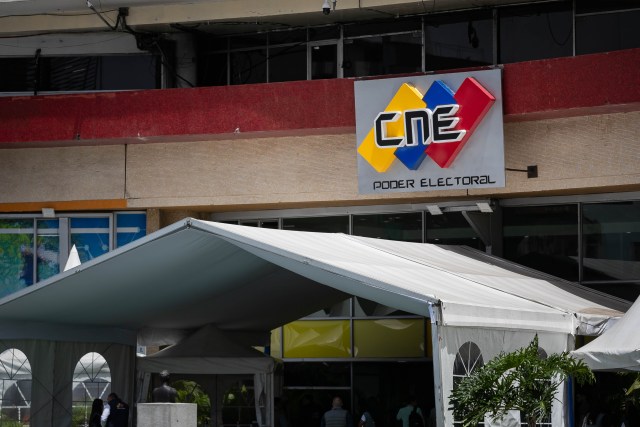
The NGO ‘Transparencia Electoral’ (Electoral Transparency, https://transparenciaelectoral.org) published an exhaustive report entitled “20 years of the automated voting system in Venezuela: Guarantees, suspicions and vulnerabilities”, which analyzes the two decades of operation of the automated voting system implemented in this Caribbean country since 2004.
The document addresses, among other aspects, the political controversies that have marked the system’s application in a context of growing authoritarianism under the governments of Hugo Chávez and Nicolás Maduro. All this after the fraud committed by the Chavista regime the past July 28th, when the National Electoral Council proclaimed the dictator as the winner of the elections without presenting the official records (minutes, ‘actas’) that supported the results.
The analysis takes special relevance when the automated system, through its capacity for traceability and auditing, allowed the opposition forces to dismantle the official discourse and demonstrate the massive fraud committed by the government. Through the publication of 83% of the minutes of the vote count, the victory of the opposition leader Edmundo González was definitely exposed, contradicting the results announced by the National Electoral Council (CNE).
The automated voting system in Venezuela was introduced in 2004 as a response to the growing demands for electoral transparency. This innovative scheme included the use of electronic voting machines with paper backup, biometric authentication of voters and citizen audit mechanisms.
The report highlights that these measures have strengthened, in technical terms, the capacity of the system to guarantee faster and more auditable processes. In 2012, biometric authentication was introduced to improve voter identification and prevent multiple voting, while double verification (electronic voting supported by paper) allowed the results issued by machines to be compared with physical records.
According to another NGO ‘Transparencia Venezuela’, despite these innovations, the political context has compromised confidence in the system. The CNE’s subordination to the United Socialist Party of Venezuela (PSUV), threats to the secrecy of the vote, and documented cases of fraud have undermined its legitimacy.
The report recalls events such as the leak of the ‘Tascón List’ in 2004, which revealed the names of all citizens who signed a petition to recall Chávez, generating fear and political reprisals. This fact reinforced suspicions about the confidentiality of voting and became a great ghost around the elections in the country. The idea that voting is not secret was installed and still roams around threatening those who believe in reprisals by Chavismo when they go to vote.
The document highlights that, although the system has been technically robust, its use in key elections has been marked by irregularities. Among the most emblematic cases are:
– Elections for the National Constituent Assembly in 2017: The process was widely questioned, with allegations of data manipulation to inflate participation.
– Regional elections in 2017 in the state of Bolívar: It was documented that the official results did not coincide with the minutes (official records, ‘actas’) of the electoral witnesses.
– Presidential fraud in 2024: Here the irregularities reached their maximum expression, but the capacity of the opposition forces to audit and publish results exposed the manipulation, forcing an international rejection of the ‘proclaimed results’.
The report also details how events such as the 2020 fire at a CNE warehouse, which destroyed thousands of voting machines, and the growing influence of the ‘ExClé’ company, linked to senior government officials, have further undermined the credibility of the system.
‘Transparencia Electoral’ stresses that, despite vulnerabilities, the automated system has played a key role in the fight for democracy. Its ability to document irregularities has allowed democratic forces to dismantle official narratives and make visible the extent of fraud.
However, the report emphasizes that technology alone cannot guarantee fair elections in contexts where authoritarianism prevails. It points to the urgency of a structural reform that guarantees the independence of the CNE, eliminates the influence of the PSUV and restores citizen confidence in the electoral system.
The case of the 2024 elections shows that, although technology can expose manipulations, political will is essential to ensure truly transparent and equitable processes. In this sense, Electoral Transparency invites us to reflect on the role of electoral technology in contexts of democratic crisis and advocates for a political and ethical commitment to equity and justice.

